How is the training conducted?
The University of Science is the most experienced and largest university in Vietnam specializing in semiconductor technology.
In 1947, the transistor – the world's first semiconductor device – was invented at Bell Labs, USA. In 1962, the University of Science manufactured the first transistor in Vietnam.
The university's Semiconductor Technology training program is built upon the experience and achievements of the Materials Science field (50 years of experience) as well as a bridging program with foreign semiconductor technology postgraduate programs, such as the NYCU - Taiwan joint master's program in Semiconductor Technology since 2020.
As a leading research-based higher education institution, the University of Science possesses many modern facilities, most notably a cleanroom system capable of semiconductor chip manufacturing.
The university's Bachelor of Semiconductor Technology program is designed to provide foundational and in-depth knowledge of semiconductor materials, integrated circuit design (IC design), semiconductor fabrication technology, microelectronic systems and sensors, photonics, and nano-components. Students learn theory combined with practical laboratory work, participate in research projects, and intern at leading technology companies.
Professor Nguyen The Toan, Head of the Department of Physics, Faculty of Science, Vietnam National University, Hanoi, said that students enrolled in this program will receive thorough training, possess a solid theoretical foundation and proficient practical skills to work in important positions in the semiconductor industry such as manufacturing; design, packaging and testing of integrated semiconductor components (ICs); and developing new materials to improve the quality of components and devices.
Students also have the potential to participate in research and teaching at research institutions and higher education institutions; they can continue their studies and research at a higher level in semiconductor technology and related fields; and they are highly adaptable to the demands of the labor market.
In addition to professional training, students are also trained in soft skills, including communication, management, teamwork, and strong foreign language abilities, enabling them to work in multidisciplinary, multicultural, and multinational environments.
Students will be exposed to and become familiar with scientific research capabilities from their first year, learning independently and updating their knowledge and new technologies; developing entrepreneurial and innovative thinking, objective thinking, scientific research skills, and the ability to solve practical problems. At the same time, they will be able to apply the knowledge and skills acquired to real-world production to improve the quality of processes and products.
According to Professor Nguyen The Toan, the Department of Physics has also collaborated closely with many technology companies to provide students with opportunities for internships, research, and practical work experience, enhancing their competitiveness upon graduation.
The Department of Physics, and the University of Science in general, have many policies to attract and support talented students to participate in the semiconductor technology training program. Students have the opportunity to receive valuable scholarships from various scholarship funds (worth over 10 billion VND). In addition, they are given the opportunity to participate in internships at domestic and international technology corporations to enhance their knowledge.
Amidst the booming Fourth Industrial Revolution and AI, the demand for semiconductors is increasing dramatically globally. (Illustration)
According to Dr. Hoang Chi Hieu, Deputy Head of the Department of Physics, the Department is a key research unit with the only cleanroom infrastructure at Hanoi National University, equipped with suitable equipment for manufacturing semiconductor materials and components.
The Physics Department's laboratory is a modern research and practice facility, serving the training and scientific research in physics and related fields. With its advanced equipment, the laboratory helps undergraduate, graduate, and doctoral students access practical experiments, from basic physics to high-tech applications.
"The laboratory is organized into several specialized groups such as theoretical physics, solid-state physics, applied physics, optics - spectroscopy, nuclear physics, and biomedical physics. Research here not only contributes to improving the quality of education but also has high applicability in science and technology," said Dr. Hoang Chi Hieu.
Dr. Hoang Chi Hieu further emphasized that the Department of Physics is constantly transforming basic research into high-tech scientific and technological products, a cutting-edge feature of the semiconductor technology training program.
Job opportunities are abundant and internationally recognized.
Regarding job opportunities after graduation, according to Dr. Hoang Chi Hieu, the semiconductor industry is developing strongly globally, opening up many attractive job opportunities for semiconductor technology graduates.
Graduates can work at major chip and semiconductor manufacturing companies such as Intel, Samsung, TSMC, GlobalFoundries, Foxconn…; electronics technology corporations like Apple, Qualcomm, NVIDIA, Sony…; research institutes and laboratories specializing in materials, microchips, and nanotechnology; high-tech and IoT startups; or teach at universities.
In addition, students have many opportunities to access scholarships to continue their master's/doctoral studies at top universities worldwide in Japan, South Korea, Taiwan, Singapore, the United States, and more.
The global demand for highly skilled personnel in the chip industry is high, offering attractive salaries, giving graduates a competitive edge in large domestic and international corporations.
The university is recruiting 140 students across 7 subject combinations.
Hanoi National University has assigned the University of Science to open a bachelor's program in semiconductor technology, with the first cohort of 140 students expected in 2025.
In 2025, the Department of Physics, Faculty of Science, Vietnam National University, Hanoi, will begin recruiting students for its Semiconductor Technology program, a full-time bachelor's degree program, with 140 places and the following admission combinations: A00, A01, A02, C01, C02, B00, D07.
According to Associate Professor Dr. Nguyen Anh Tuan, Head of the Training and Student Affairs Department, Vietnam National University, Hanoi, the fact that Vietnam National University, Hanoi has assigned the Faculty of Physics, University of Science, to open a Bachelor's program in Semiconductor Technology not only meets the urgent need for human resources but also contributes to enhancing Vietnam's position in the global supply chain.
This is an opportunity for pioneering universities to train semiconductor experts, serving the country's development in the digital age.
The cleanroom laboratory system of the Department of Physics, Faculty of Science, Vietnam National University, Hanoi, is equipped with modern and advanced equipment. Photo: VNU
The Bachelor of Semiconductor Technology program is divided into three specializations: Semiconductor and IC Component Manufacturing Technology; Semiconductor Component Packaging and Testing Technology; and Semiconductor Materials Technology.
"With the goal of equipping students with comprehensive foundational and in-depth knowledge of semiconductor technology, Hanoi National University graduates can confidently apply their knowledge in practice, meeting the demand for high-quality human resources in the 4.0 technological revolution, fostering entrepreneurship, and integrating into the international community," Associate Professor Nguyen Anh Tuan emphasized.
Semiconductor technology is the "backbone" of the digital economy, playing a core role in the production of microchips, electronic chips, sensors, and high-tech devices. In the context of the Fourth Industrial Revolution and the explosion of AI, the demand for semiconductors is increasing dramatically globally, especially in the fields of electronics and telecommunications, smart cars and electric vehicles, artificial intelligence (AI) and high-performance computing, the Internet of Things (IoT), and smart cities. The shortage of highly skilled personnel is becoming a major obstacle to the development of this industry.
According to experts, the demand for semiconductor technology professionals is growing rapidly. Numerous reports indicate that the semiconductor industry is facing a global labor shortage. Major technology corporations such as Micron, Intel, Samsung, TSMC, Qualcomm, etc., all need a team of highly specialized semiconductor engineers to support their production and research and development (R&D).
In Vietnam, the government is strongly promoting the semiconductor industry, attracting investment from major players such as TSMC, Samsung, Intel, Amkor, etc. The demand for personnel in this field is expected to increase 3-4 times in the next decade, requiring a workforce with formal training in integrated circuit design, semiconductor manufacturing, and product quality control.
In recent years, a number of universities have opened majors related to semiconductor chip training.
The Prime Minister has tasked the Ministry of Education and Training with urgently developing training program standards for semiconductor integrated circuits. To implement this directive, the Ministry of Education and Training immediately issued an action plan and a decision to establish a working group and an advisory council to develop training program standards for semiconductor integrated circuits.
Currently, the Ministry of Education and Training is seeking feedback on the draft standards for undergraduate and master's degree programs in semiconductor integrated circuits.
Thuy Duong
Source: https://daibieunhandan.vn/cong-nghe-ban-dan-la-xuong-song-cua-nen-kinh-te-so-sinh-vien-se-duoc-dao-tao-nhu-the-nao-post410018.html


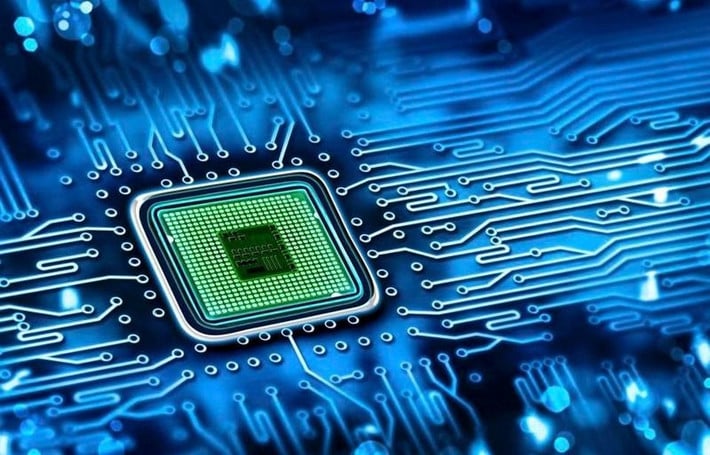
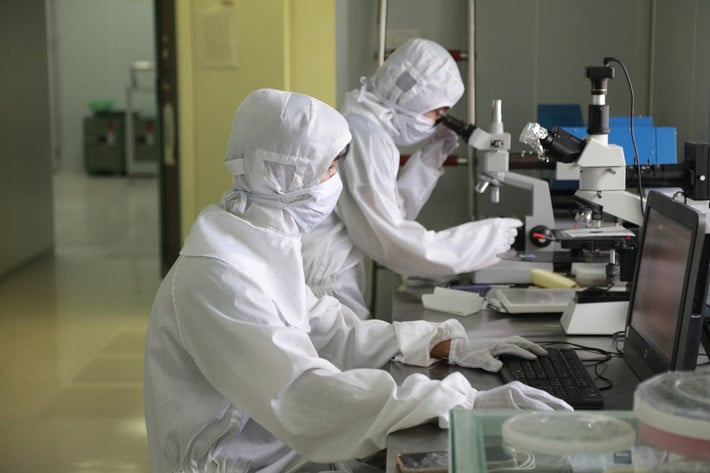
![[Photo] Closing Ceremony of the 10th Session of the 15th National Assembly](/_next/image?url=https%3A%2F%2Fvphoto.vietnam.vn%2Fthumb%2F1200x675%2Fvietnam%2Fresource%2FIMAGE%2F2025%2F12%2F11%2F1765448959967_image-1437-jpg.webp&w=3840&q=75)
![[Photo] Prime Minister Pham Minh Chinh holds a phone call with the CEO of Russia's Rosatom Corporation.](/_next/image?url=https%3A%2F%2Fvphoto.vietnam.vn%2Fthumb%2F1200x675%2Fvietnam%2Fresource%2FIMAGE%2F2025%2F12%2F11%2F1765464552365_dsc-5295-jpg.webp&w=3840&q=75)




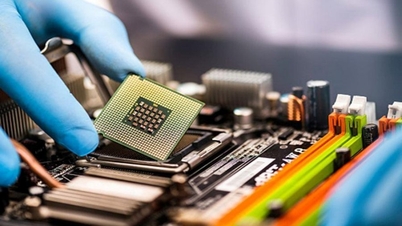

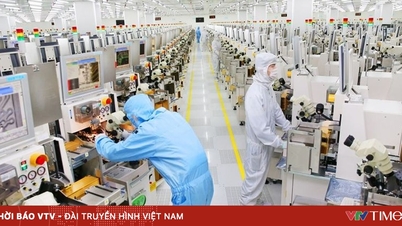

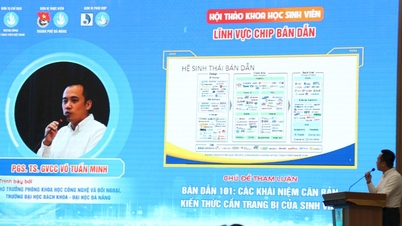

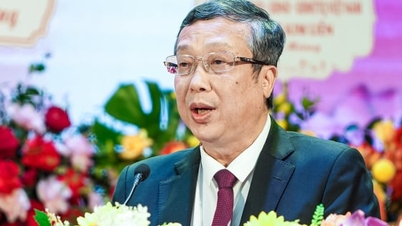

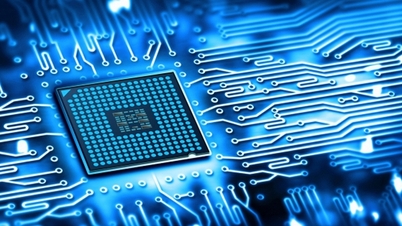

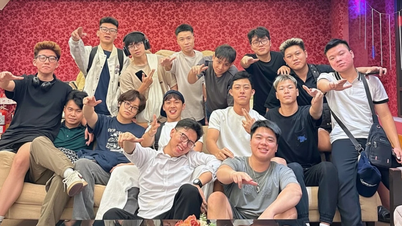









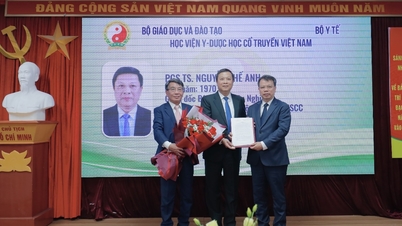









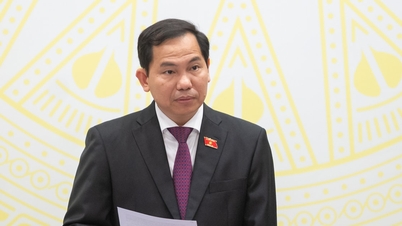

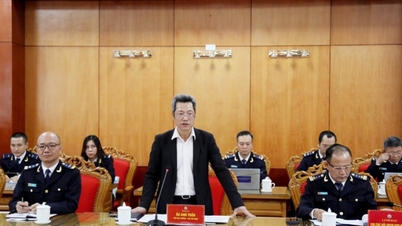




















![[OFFICIAL] MISA GROUP ANNOUNCES ITS PIONEERING BRAND POSITIONING IN BUILDING AGENTIC AI FOR BUSINESSES, HOUSEHOLDS, AND THE GOVERNMENT](https://vphoto.vietnam.vn/thumb/402x226/vietnam/resource/IMAGE/2025/12/11/1765444754256_agentic-ai_postfb-scaled.png)
































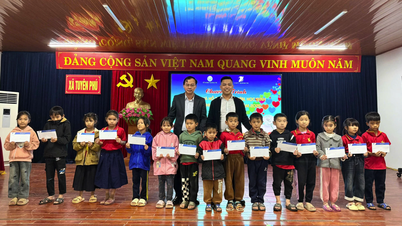



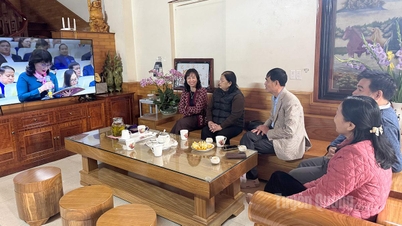















Comment (0)